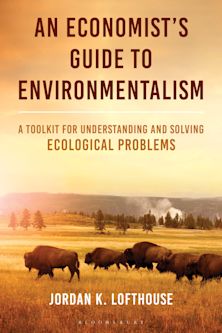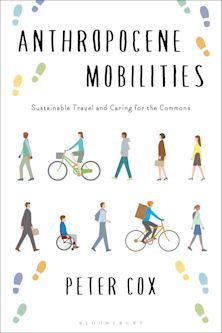- Home
- ACADEMIC
- Politics & International Relations
- Environmental Politics
- Environmental Dilemmas
This product is usually dispatched within 3 days
- Delivery and returns info
-
Free US delivery on orders $35 or over
You must sign in to add this item to your wishlist. Please sign in or create an account
Description
Because many people and ecosystems share-or constitute-any given place, they all have a stake in the outcome of what any of us do in regard to environmental problems. It is not surprising that issues are hotly contested given the many divergent interests, needs, and preferences of a community's members, much less those of people "downstream" who are affected by the consequences of our actions or of "outside" parties who play a part, including those who would speak on behalf of the ecosystems.
Thus, we not only must make careful individual decisions concerning the environment, but need to improve the way we operate socially, especially given the roles and responsibilities we have as environmental professionals, private-sector developers, public policy-makers and staff, or engaged citizens. To aid in resolving our environmental dilemmas, Mugerauer and Manzo focus on the decision making process. Their goal is to help readers become more aware of the worldviews, beliefs, and values that enter into the decisions they make and to better resolve differences with others. To guide readers in thinking about their own positions and how to approach ethical decisions, Mugerauer and Manzo employ a number of exercises and cases to investigate the choices and issues that different stakeholders face (for example, concerning sustainability). Additionally, the book presents alternatives in terms of formalized ethical principles, the major ethical theories, and professional codes of ethics.
Table of Contents
Chapter 2 1. Reflection, Responsibility, and Decision-Making
Chapter 3 2. The Environmental Professions, Reflection, and Responsibility
Chapter 4 3. Principles and Rules
Chapter 5 4. Major Ethical Theories
Chapter 6 5. Reframing Sustainability: Environmental and Social Responsibility
Chapter 7 6. Professional Codes and Beyond
Product details
| Published | May 19 2008 |
|---|---|
| Format | Paperback |
| Edition | 1st |
| Extent | 410 |
| ISBN | 9780739120583 |
| Imprint | Lexington Books |
| Dimensions | 9 x 6 inches |
| Series | Toposophia: Thinking Place/Making Space |
| Publisher | Bloomsbury Publishing |
About the contributors
Reviews
-
It does a real service by showing that the diverse envrionmental design professions have more similarities than differences when it comes to ethical reasoning.
Environmental Ethics
-
Over the last decades, many books have been published in the field of environmental ethics. Far too few link ethics to practical strategies for environmental decision making. Finally, here is a book that makes a real difference: this important volume breaks new ground by moving beyond abstract theorizing and focusing instead on how to actually make environmental decisions in a responsible manner.
Ingrid Leman Stefanovic, Centre for Environment, University of Toronto


































